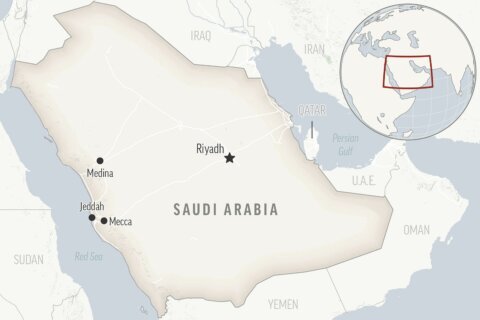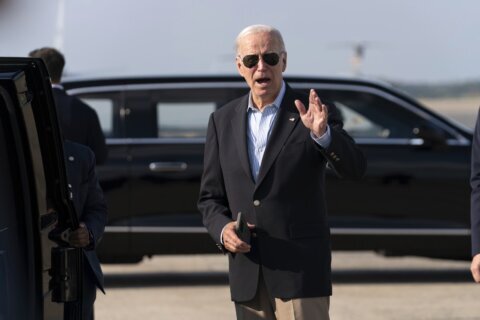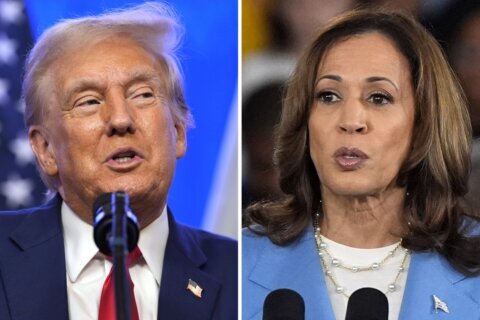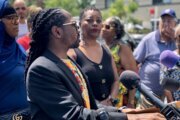Using traditional banking services is crucial to navigate today’s world. Still, millions of U.S. households are unbanked, lacking a checking account with a bank or credit union. If you want a bank account and don’t have one, underserved banking programs are available, along with financial literacy education to help you manage banking relationships.
What It Means To Be Unbanked or Underbanked
People with limited or no bank accounts are considered unbanked or underbanked. Some may have bank accounts but regularly use alternative financial services such as check cashing. Households may go unbanked by choice or out of necessity, and some can’t get approved for a checking account due to issues with prior accounts.
In 2021, an estimated 4.5% of U.S. households were unbanked, according to the FDIC National Survey of Unbanked and Underbanked Households. The unbanked rate equals about 5.9 million households in which no members had a checking or savings account with a financial institution.
In the FDIC survey, 21.7% of unbanked households said they didn’t have an account because they lacked the money to meet minimum balance requirements. While minimum balance requirements were the most-cited main reason for going unbanked, 13.2% said they don’t trust banks and 8.4% avoid banks for privacy reasons.
Just 2.7% of unbanked households surveyed cited lacking the personal identification to open an account as a main reason for being unbanked, though it was a contributing factor for 11.6%.
“For many, it’s not a choice: they can’t afford a bank account,” says Bill Maurer, professor of anthropology and law at University of California, Irvine. “Because they rely on alternative and often predatory financial services, they also get trapped in cycles of debt and poverty.”
Maurer says recent immigrants and refugees may struggle to open bank accounts due to linguistic, cultural or trust reasons. “If you come from a country where banks routinely fail, you’re not going to trust the bank and probably instead will rely on kin networks or traditional, informal savings clubs,” he says. And those who lack identity documentation can’t open bank accounts because banks require proof of identity.
[Read: Best Savings Accounts.]
Problems With Being Unbanked
Whether by choice or inability to get a bank account, not having a checking account can cause issues. These are some of the problems people who are unbanked may encounter:
— High fees when using alternative financial services, such as check cashing services or prepaid debit cards.
— Longer waiting periods to access funds.
— Limited access to credit cards, which generally require a bank account.
— Limited savings opportunities.
— Time spent waiting in line to pay bills or send money.
— Risking loss or theft of cash.
“Being unbanked is inconvenient and costly, as individuals in this situation are forced to pay high fees for their everyday financial needs, such as cashing their paychecks, making payments or transferring money,” says money coach and certified financial planner Ohan Kayikchyan. “Another challenge is the absence of the opportunity to build banking relationships, as cash-checking places are transactional in nature. Unbanked individuals often face difficulties in saving money also and, in many cases, are unable to improve their credit history.”
[See: Best Checking Accounts]
What Banks Are Doing to Help Underbanked People
Banks offer services to unbanked or underbanked individuals including education and bank account access.
Consumers have access to free financial education, such as ABA Foundation programs, or independent bank programs, such as Bank of America’s Better Money Habits resources. Government organizations also offer financial education programs, such as FDIC Money Smart.
In addition to education, banks may offer low- or no-cost bank accounts. Bank account products within the Bank On platform, for example, must be certified to meet standards that lower barriers to entry.
Bank On certified accounts must have a $25 or lower minimum opening deposit, little to no fees and a free debit card. While not required, Bank On strongly recommends that accounts accept alternative identification and only deny new customers for past fraudulent activity. Bank products certified by the program can improve banking access for people who face difficulties meeting traditional bank account requirements.
Some banks and credit unions are trying to make their offerings more transparent, says Maurer, like making it easier to understand bank account fees.
[READ: Best Credit Cards for No Credit.]
What To Do If You’re Underbanked
If you’re underbanked and don’t want to be, you have options for getting a bank account:
— Shop bank accounts designed for people who are underbanked. Banks may offer second-chance checking accounts to customers who’ve previously struggled to maintain checking accounts, and you can consider bank account products certified by Bank On with standards that make it easier to get and keep a bank account.
— Use financial literacy programs. Financial education can help you understand bank account management and the best ways to manage some of the barriers to opening and maintaining bank accounts, such as managing fees, avoiding overdrafts or finding a bank that offers services in your area — even if it’s online.
— Correct errors in your checking account report. You have a right to remove incorrect information on your checking account report. If you’re denied a bank account, read the adverse action notice and find out which checking account reporting company provided information used to make the decision, such as ChexSystems or Early Warning Services. You can then contact the checking account reporting company to get a free copy of your report, identify errors, and file a dispute with the reporting financial institution and the checking account reporting company to remove the error from your report.
— Ask for help. Maurer recommends dialing 211 to get connected with a resource specialist to help you find what you need. He says you can also turn to community centers, senior centers and libraries as information sources and a way to get financial coaching.
More from U.S. News
What Is a Good Interest Rate on a Savings Account?
How Many Bank Accounts Should I Have?
Safe Deposit Box Basics: Who Needs One and What To Keep In It
What Does It Mean to Be Unbanked? originally appeared on usnews.com







